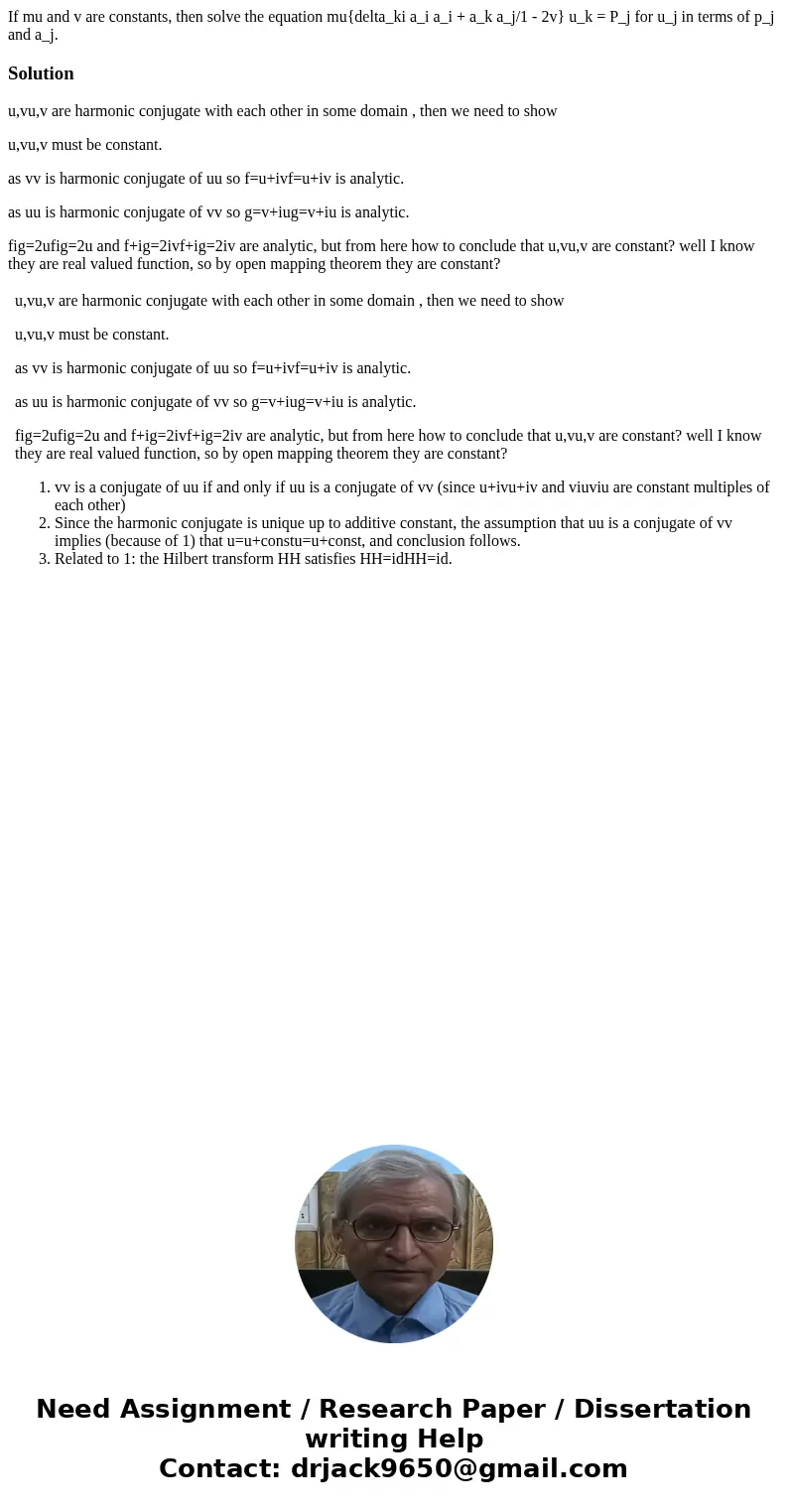If mu and v are constants then solve the equation mudeltaki
Solution
u,vu,v are harmonic conjugate with each other in some domain , then we need to show
u,vu,v must be constant.
as vv is harmonic conjugate of uu so f=u+ivf=u+iv is analytic.
as uu is harmonic conjugate of vv so g=v+iug=v+iu is analytic.
fig=2ufig=2u and f+ig=2ivf+ig=2iv are analytic, but from here how to conclude that u,vu,v are constant? well I know they are real valued function, so by open mapping theorem they are constant?
| u,vu,v are harmonic conjugate with each other in some domain , then we need to show u,vu,v must be constant. as vv is harmonic conjugate of uu so f=u+ivf=u+iv is analytic. as uu is harmonic conjugate of vv so g=v+iug=v+iu is analytic. fig=2ufig=2u and f+ig=2ivf+ig=2iv are analytic, but from here how to conclude that u,vu,v are constant? well I know they are real valued function, so by open mapping theorem they are constant?
|

 Homework Sourse
Homework Sourse